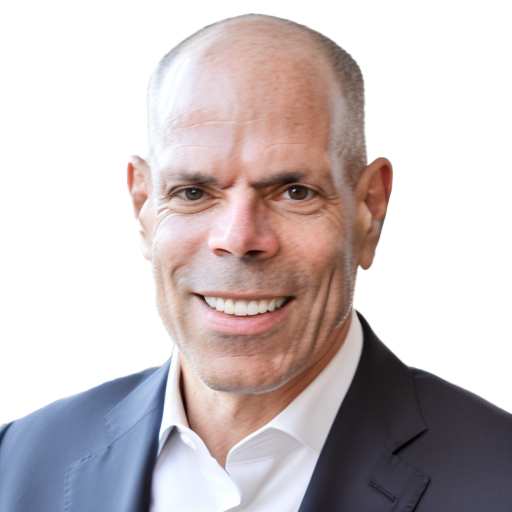
The private equity landscape is evolving rapidly, with cybersecurity emerging as a critical factor in both risk mitigation and value creation. Once considered a mere operational expense, cybersecurity has transformed into a strategic imperative that can significantly impact portfolio performance. This blog explores the multifaceted role of cybersecurity in private equity, demonstrating how it not only safeguards investments but also drives substantial value.
Understanding the Cyber Threat Landscape
Private equity firms and their portfolio companies are increasingly targeted by sophisticated cyberattacks. From ransomware to data breaches, the threat landscape is constantly evolving. These attacks can result in financial losses, reputational damage, and regulatory penalties. To effectively protect investments, private equity firms must possess a deep understanding of the cyber threats facing their portfolio companies.
Cybersecurity Due Diligence: A Cornerstone of Value Creation
Thorough cybersecurity due diligence is essential for identifying potential risks within portfolio companies. By assessing an organization’s security posture, private equity firms can identify areas for improvement and develop strategies to mitigate risks. Moreover, cybersecurity can serve as a powerful value driver. By investing in robust cybersecurity measures, portfolio companies can enhance their competitive advantage, attract top talent, and improve customer trust.
Building a Strong Cybersecurity Foundation
A robust cybersecurity foundation is crucial for protecting portfolio investments. This involves implementing comprehensive security frameworks, such as NIST Cybersecurity Framework or ISO 27001, to establish a structured approach to risk management. Regular risk assessments are essential to identify vulnerabilities and prioritize mitigation efforts. Additionally, developing a well-defined incident response plan is critical for minimizing the impact of cyberattacks.
Cybersecurity as a Competitive Advantage
Beyond risk mitigation, cybersecurity can be a powerful tool for creating value. By prioritizing cybersecurity, portfolio companies can differentiate themselves from competitors, attract top talent, and improve customer trust. Moreover, strong cybersecurity practices can mitigate regulatory risks, such as compliance with GDPR or CCPA, which can enhance a company’s overall value.
Measuring the ROI of Cybersecurity Investments
Demonstrating the value of cybersecurity investments can be challenging due to the intangible nature of security benefits. However, with careful planning and measurement, it’s possible to quantify the ROI.
Key Metrics for Evaluating Cybersecurity Performance
- Cost Avoidance: Calculating the potential financial losses prevented by cybersecurity measures. This includes estimated costs of data breaches, ransomware attacks, and business disruptions.
- Mean Time to Detect (MTD) and Mean Time to Respond (MTR): Measuring how quickly threats are identified and addressed can demonstrate the effectiveness of security operations.
- Reduction in Security Incidents: Tracking the number of security incidents over time can show the impact of cybersecurity investments.
- Improvement in Security Posture: Evaluating metrics like vulnerability management, patch compliance, and user behavior analytics can demonstrate progress in strengthening overall security.
- Employee Productivity: Measuring the impact of security incidents on employee productivity can highlight the business costs of downtime.
- Customer Satisfaction: Assessing customer trust and loyalty can indirectly measure the impact of cybersecurity on brand reputation.
Challenges and Considerations
- Attribution: Linking specific cybersecurity investments to specific outcomes can be difficult.
- Intangible Benefits: Some benefits, such as improved brand reputation, are challenging to quantify.
- Balancing Costs and Benefits: Determining the optimal level of cybersecurity investment requires careful analysis of costs and potential returns.
Best Practices
- Establish Clear Objectives: Define specific goals for cybersecurity investments.
- Implement Key Performance Indicators (KPIs): Select relevant metrics to track progress.
- Use Benchmarking: Compare performance to industry standards or peers.
- Continuous Improvement: Regularly review and adjust cybersecurity strategies based on performance data.
- Communicate Value: Effectively communicate the ROI of cybersecurity investments to stakeholders.
Measuring ROI in Specific Cybersecurity Areas
Endpoint Security
Endpoint security is a critical component of overall cybersecurity strategy. To measure its ROI, consider the following metrics:
- Reduction in endpoint infections: Tracking the number of endpoint devices compromised by malware.
- Time saved on incident response: Calculating the time saved by automating endpoint protection and detection.
- Cost of data breaches: Estimating the potential financial loss from a data breach originating from an endpoint.
- Employee productivity: Assessing the impact of endpoint security on employee productivity by measuring downtime due to malware infections.
Cloud Security
Given the increasing reliance on cloud services, measuring the ROI of cloud security investments is essential:
- Cost savings: Quantifying cost reductions through cloud security measures, such as data loss prevention and threat detection.
- Compliance adherence: Demonstrating compliance with industry regulations and standards through cloud security controls.
- Risk reduction: Assessing the reduction in security risks associated with cloud infrastructure.
- Business continuity: Measuring the impact of cloud security on business continuity and disaster recovery capabilities.
By carefully tracking these metrics and correlating them with specific cybersecurity investments, private equity firms can demonstrate the value of their security initiatives and make data-driven decisions.
Conclusion
Cybersecurity is no longer an afterthought for private equity firms. It is a strategic imperative that can significantly impact portfolio value. By understanding the cyber threat landscape, conducting thorough due diligence, and building a strong cybersecurity foundation, private equity firms can protect their investments, mitigate risks, and unlock new growth opportunities.
Cyberleaf offers a comprehensive cybersecurity solution that can help private equity firms achieve these goals. Our Defense-in-Depth approach provides unparalleled protection against advanced threats, while our focus on efficiency and cost-effectiveness delivers exceptional value.
Let Cyberleaf be your partner in safeguarding your portfolio and driving long-term success.
Book a Free Consult Call Today!





